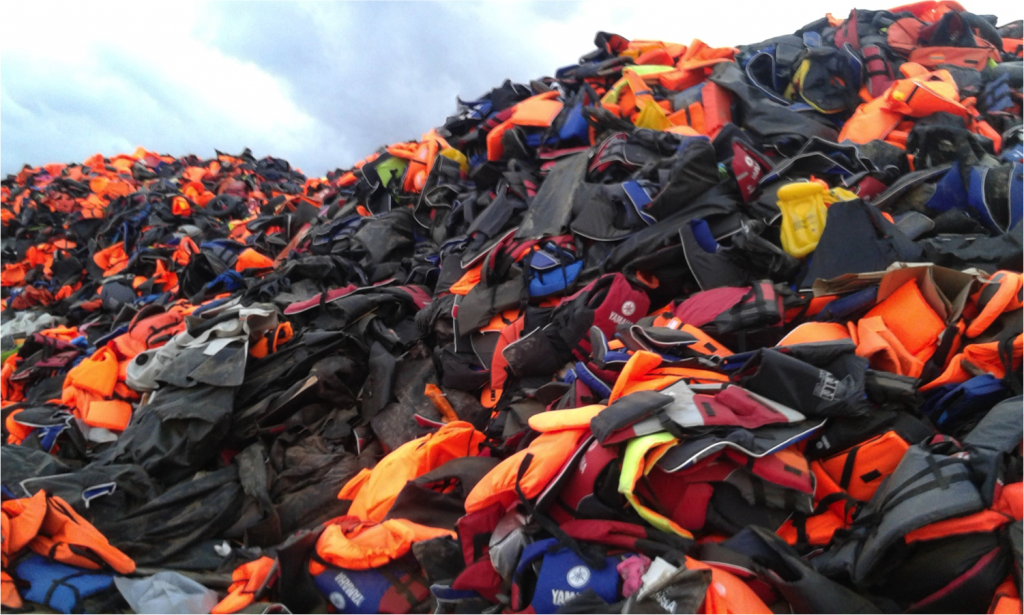Student Research: “I feel forgotten”: The Hidden Crisis of Greek Islanders
by Stratos Kamenis (MALD 2017)
The massive exodus of the Syrian people has led to a refugee crisis in Europe. Hundreds of thousands of refugees have made the long journey across Turkey and then to Greece, putting their lives in danger in the hope of finding a better future in Europe. In 2015, more than a million asylum-seekers took refuge in Europe, with another 500,000 following in the first half of 2016. A deal was struck between the European Union and Turkey in March aimed at limiting the number of migrants and regulating migration by establishing EU-administered camps – the so-called hotspots – on the Greek islands of Lesvos, Chios, Samos, and Kos, from where the majority of migrants enter Europe.

The island of Lesvos found itself under the spotlight of international media as the central entry point to Europe. Some 600,000 refugees and migrants have passed through the island over the past 19 months. After a year of coping with the crisis without aid from international organizations, the impact on Lesvos’ 85,000 permanent residents has been significant. To their credit, the locals have been gracious hosts. Their sense of tolerance and solidarity has been praised by major world figures including Pope Francis, Queen Rania of Jordan, actress Angelina Jolie and former UN Secretary General Ban Ki Moon. Their humanitarian efforts have earned them a nomination for the Nobel Peace Prize.
Unfortunately, as the refugee crisis stretches on, Lesvos’ economy has deteriorated under the weight of supporting the refugees, and with it, relations between the native and refugee communities. Even now, there are more than 6,000 refugees living in two camps near Lesvos’ capital Mytilene. Despite local efforts, the island’s economy has deteriorated. Relations between the host community and refugees are strained as the camps place additional pressure on local economic resources. A number of reports published by the island’s Chamber of Commerce and the University of the Aegean reveal the economic collapse. Tourism has decreased significantly. The average revenue of the agricultural, manufacturing, and service sectors has declined due to loss of income and subsequent drop in demand. The island’s unemployment rate is at a record level for the first time since 2010.
In 2016, tourist reservations to Lesvos decreased between 65% to even 80% due to cancellations of chartered flights to the island and because many business partners did not effectively market Lesvos as a destination. The constant portrayal by volunteers, NGOs, and the media of images of boats landing on the island’s shores, even long after the number of boats had diminished significantly, left an imprint on people’s minds that the island was over flooded with refugees. As a result, visitors to the island declined and many businesses were not able to open. The ones that did open were not able to pay their bills, taxes, and loans in order to sustain their existence and they were not able to hire the usual personnel they typically had, thus increasing unemployment. Even worse, many people lost the ability to apply for unemployment benefits during winter 2016 as there is a minimum number of days an employee is obliged to work in order to have the right to receive unemployment and health insurance benefits for themselves and their family members.

The local community has been affected on many levels, economically, psychologically, environmentally, and sociologically throughout the course of time. The immediate and most obvious effect was economical. While the refugee crisis continues to receive international attention, in large part due to the involvement of UNHCR, the European Union, and humanitarian NGOs, the local economic collapse has not been addressed. The demand for policies to stimulate the local economy has escalated since recent protests by local business owners, who are worried that the island’s most productive sectors are being destroyed. There are also many extreme voices spiraling out of control due to the continuous absence of governmental aid while extreme right wing voices are clashing with extreme left wing voices. These extreme voices can only be softened by the Greek government and the EU providing the necessary, overdue support to the local community so that the local community can in turn support and accept the refugees. The EU governments should establish a support system and take action to protect these volatile communities so that they can counter this vicious cycle and create a future of peace for both refugees and natives.
Stratos Kamenis is a 2017 Master of International Business Candidate at The Fletcher School
